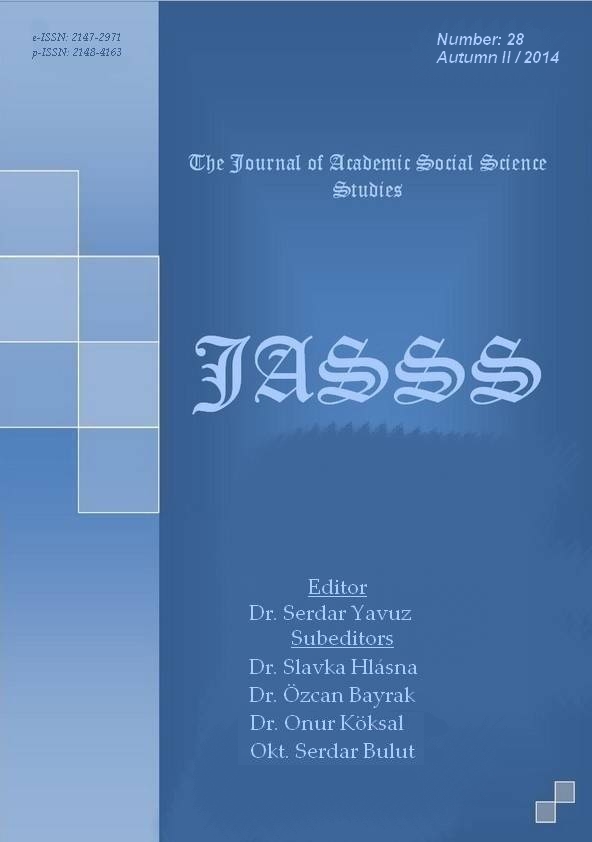TÜRKİYE’DE MİLLİYETÇİLİK VE MİLLİ KİMLİK: TÜRKÇÜLÜĞÜN KEŞFİ VE ULUS-DEVLETLEŞME SÜRECİNDE TÜRK MİLLİ KİMLİĞİ
Author :
Abstract
Bu makale, Osmanlı İmparatorluğu’nun son döneminden Türkiye Cumhuriyeti’ne varan tarihsel dönem içerisinde Türk milliyetçiliğinin ortaya çıkış sürecini konu edinmektedir. Bu doğrultuda, Türkiye’de milliyetçiliğin ortaya çıkış süreci olarak kabul edilen, Osmanlı İmparatorluğu’nun modernleşme sürecinden, bu süreçte milliyetçiliğin aldığı biçimden ve oynadığı rolden itibaren Türk milliyetçiliğinin gelişimine odaklanmaktadır. Bu sürecin doğru analiz edilebilmesi için öncelikle, Osmanlı İmparatorluğu’nun son döneminde yaşanan savaşlar ve göç dalgaları gibi nüfus hareketleri ortaya konulmuştur. Ardından modernleşme ile birlikte yaşanan toplumsal, ekonomik ve siyasi gelişmelerle birlikte ortaya çıkan Batı tarzı kurumsal değişimler, eğitim sistemindeki gelişmeler ve entelektüel çevrelerde gelişen milliyetçi söyleme değinilmiştir. Peşi sıra, ulus devletleşme aşamasında devlet güdümünde Türk milli kimlikleştirme süreci, vatandaşlık eğitimi yoluyla vatanseverlik bilincinin edinilmesi ve halkçı düşünceden hareketle kültürel alanda Türkçülüğün işlenmesi gibi son dönem gelişmeler ele alınmıştır. Makalenin temel tezi, Türkiye’de milliyetçiliğin temel görüntüsü olarak yer edinen Türk milliyetçiliğinin doğru analiz edilebilmesi için, bu çalışmada yer verilen gelişmelerin bir bütün olarak değerlendirilmesi gerekliliğidir.
Keywords
Abstract
This article aims to demonstrate the emergence of Turkish nationalism within the historical period from Ottoman Empire to the Republic of Turkey. In this direction, beginning from the process of modernization of Ottoman Empire as to be known the existence of nationalism in Turkey and the shaping form and playing role of nationalism in this process, rise of Turkish nationalism was focused. In this contex, at the beginning, the wars and the undergoing population mobility like the waves of migration during the late Ottoman Empire was revealed for a proper analysis of Turkish nationalism. After, during the social transformation within the modernization period, especially political and cultural developments such as the institutional changes and educational reforms adopted to Western culture and the emergence of nationalist discourse inside the intellectual circles were mentioned. Sequentially, the final developments such as state-led national identification process during the nation-building period, acquisition of patriotic awareness through the citizenship education and implementing of Turkism in the cultural field beginning with the populist idea were discussed. The thesis of this article is that for a righteous analysis of Turkish nationalism gained ground as the main phenomenon of nationalist form of Turkey, all the developments mentioned above has to be evaluated en bloc.





